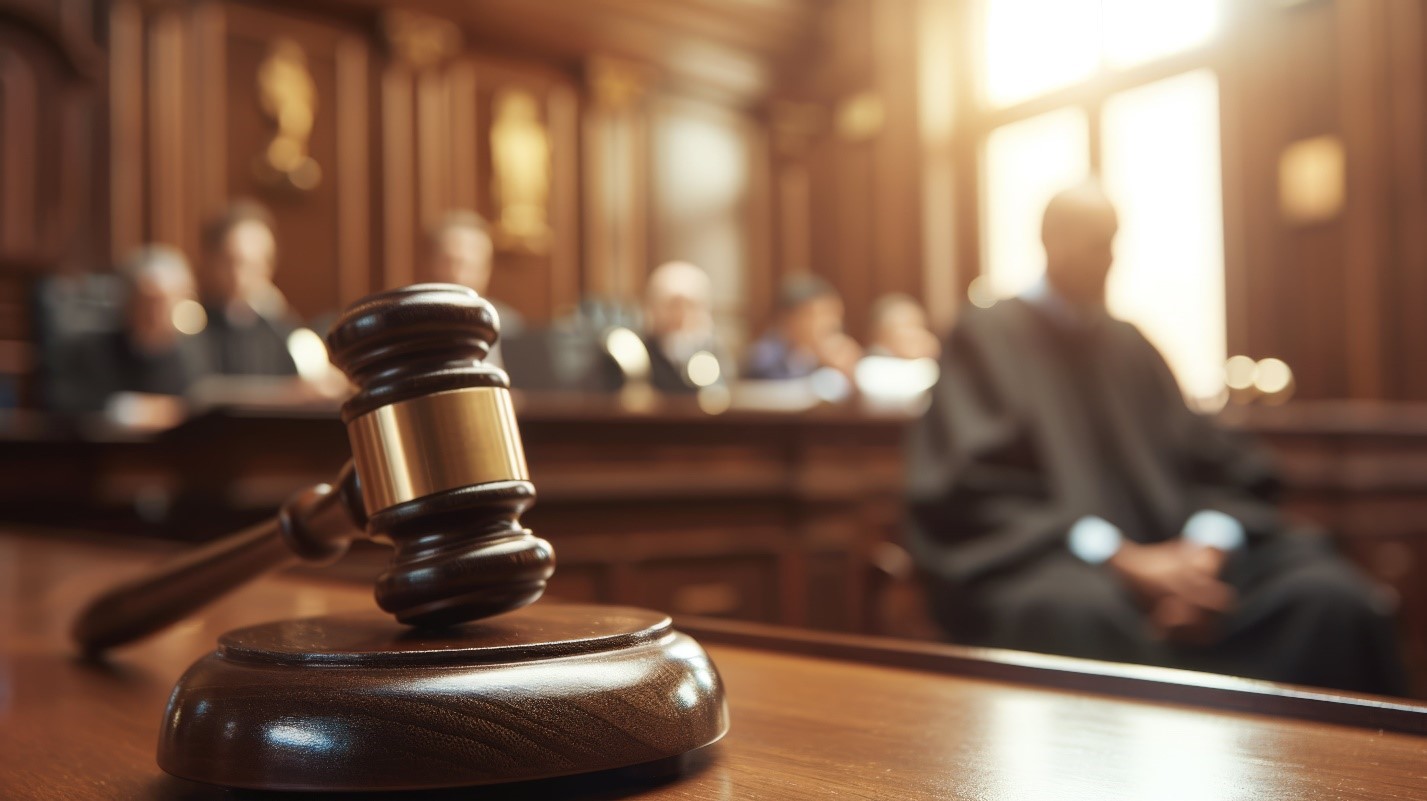
In 1999, Leonard Keith Hill established Hill & Associates, drawing upon a diverse background that encompasses more than just the legal realm. Before his career in law, he taught in inner-city middle schools, a tenure that earned him
recognition for his educational contributions from the New York Times. It was during this formative period that Leonard Hill cultivated invaluable skills in handling high-pressure scenarios and overcoming complex challenges. These experiences served as the crucible for his subsequent legal career, where he harnesses his sharp legal acumen, rigorous preparation, and adept client management to confront the multifaceted risks inherent in high-stakes litigation. In the following article, Leonard Hill delves into the intricate landscape of high-stakes litigation, offering insights into its complexities and demands.
High-stakes litigation typically involves complex legal disputes with a lot at stake for the involved parties, whether they be large corporations, small businesses, or individuals. The nature of these disputes can range from
intellectual property rights, significant contractual disagreements, large-scale consumer litigation, regulatory compliance issues, to anti-trust issues and more. Leonard Hill explains that each case demands not just legal expertise, but also a deep understanding of the client’s industry and the potential consequences of the litigation’s outcome.
Leonard Hill Explains Utilizing Strategic Planning and Team Assembly
Crafting a path to success in legal matters commences with the meticulous formulation of a robust strategy and the meticulous assembly of a proficient legal team. Leonard Keith Hill emphasizes that this team should encompass not only attorneys well-versed in pertinent areas of law but also specialists capable of offering industry-specific insights crucial to the case at hand.
Strategic Blueprint Development
Forging a victorious strategy demands an intimate grasp of legal frameworks, precedents, and the intricate nuances of applicable laws. It is imperative to devise a strategy that exhibits adaptability, poised to navigate the unpredictable ebbs and flows of legal proceedings.
Expertise and Role Allocation within the Team
A diversified ensemble comprising trial attorneys,
appellate lawyers, paralegals, industry experts, and potentially external consultants ensures comprehensive coverage of all facets of the case. Each member’s responsibilities should be meticulously delineated to prevent redundancies and guarantee exhaustive scrutiny of all case elements.
Meticulous Research and Discovery
In high-stakes litigation, the discovery phase is critical. It involves the collection, review, and analysis of mountains of documents and data relevant to the case. Leonard Keith Hill explains that leveraging technology like e-discovery tools can streamline this process and enhance the efficiency of sorting through vast amounts of information.
Harnessing Technological Innovations
Embracing cutting-edge software facilitates pattern recognition, highlights pertinent communications, and streamlines document organization for enhanced accessibility and comprehension. The rise of artificial intelligence and machine learning presents a compelling frontier in legal research and
evidence evaluation, offering substantial advantages in navigating complex legal landscapes.
Emphasizing Material Evidence
Discerning and prioritizing material evidence stands as a pivotal aspect. It's not solely about volume but rather the significance of each piece. Every element of evidence should contribute to fortifying the narrative crafted by the legal team and bolstering the overarching strategy of the case.

Effective Client Communication
Adept client management stands as a cornerstone in legal cases. Clients necessitate consistent updates and unwavering assurance in the prowess of their legal representation. Seamless communication channels are imperative to empower clients to make well-informed decisions grounded in the counsel they receive.
Cultivating Transparency and Timely Updates
Fostering transparency and furnishing regular updates instills confidence and equips clients to confront any eventuality with poise. This entails managing expectations regarding the legal proceedings, potential outcomes, and the projected timeline of the case.
Engaging Clients in Strategic Deliberations
Clients often harbor invaluable insights into their respective industries that can enrich the legal strategy. By engaging them in strategic deliberations, legal teams can devise a more personalized and potent approach tailored to the intricacies of the case.
Presentation in the Courtroom
The culmination of all preparation is the courtroom presentation. Leonard Hill emphasizes that this is where strategy, evidence, and advocacy converge to produce a compelling argument for the judge and jury.
Oral Advocacy Skills
Strong oral advocacy is essential. Lawyers must be clear, persuasive, and capable of conveying complex information in an understandable way. They must also be adept at reading the room and adjusting their approach based on the feedback and reactions of the judge and jury.
Visual Aids and Demonstratives
In complex litigations, visual aids like charts, graphs, and videos can be incredibly effective. They help in breaking down complex information and making a persuasive case to the jury.

Post-Trial Considerations
Finally, the end of a trial does not necessarily mean the end of litigation. Post-trial motions and appeals can be critical, especially in high-stakes cases. Leonard Hill explains that preparing for these potentialities should be part of the initial strategy.
Preparation for Appeal
The possibility of an appeal should be considered from the beginning. This includes preserving objections during the trial and ensuring that a robust record is created for appellate review.
Continued Engagement with the Client
Keeping the client engaged and informed remains important even after the trial. Whether this involves discussing the potential for settlement or preparing for an appeal, ongoing communication remains crucial.
In Summary
High-stakes litigation encapsulates a multifaceted and ever-evolving landscape, where triumph hinges not solely on legal proficiency but also on strategic vision, meticulous organizational prowess, and adept client stewardship. Leonard Keith Hill underscores that by prioritizing these pivotal facets, legal teams can adeptly navigate the intricate contours of high-stakes cases, steering them towards favorable resolutions for their clients.
In this dynamic arena, success is predicated on a holistic approach that transcends mere legal expertise. Strategic foresight enables anticipation of potential obstacles and formulation of preemptive measures, fostering resilience in the face of adversity. Impeccable organizational skills ensure that every aspect of the case is meticulously managed, from evidence compilation to courtroom presentation, optimizing efficiency and efficacy throughout the legal proceedings.
Moreover, proactive client management establishes a foundation of trust and confidence, engendering open communication channels and empowering clients to actively participate in their legal journey. By harnessing these key elements in concert, legal teams can navigate the complexities of high-stakes litigation with finesse, championing the interests of their clients and striving towards the attainment of favorable outcomes amidst the legal arena's challenging terrain.
 In 1999, Leonard Keith Hill established Hill & Associates, drawing upon a diverse background that encompasses more than just the legal realm. Before his career in law, he taught in inner-city middle schools, a tenure that earned him recognition for his educational contributions from the New York Times. It was during this formative period that Leonard Hill cultivated invaluable skills in handling high-pressure scenarios and overcoming complex challenges. These experiences served as the crucible for his subsequent legal career, where he harnesses his sharp legal acumen, rigorous preparation, and adept client management to confront the multifaceted risks inherent in high-stakes litigation. In the following article, Leonard Hill delves into the intricate landscape of high-stakes litigation, offering insights into its complexities and demands.
High-stakes litigation typically involves complex legal disputes with a lot at stake for the involved parties, whether they be large corporations, small businesses, or individuals. The nature of these disputes can range from intellectual property rights, significant contractual disagreements, large-scale consumer litigation, regulatory compliance issues, to anti-trust issues and more. Leonard Hill explains that each case demands not just legal expertise, but also a deep understanding of the client’s industry and the potential consequences of the litigation’s outcome.
In 1999, Leonard Keith Hill established Hill & Associates, drawing upon a diverse background that encompasses more than just the legal realm. Before his career in law, he taught in inner-city middle schools, a tenure that earned him recognition for his educational contributions from the New York Times. It was during this formative period that Leonard Hill cultivated invaluable skills in handling high-pressure scenarios and overcoming complex challenges. These experiences served as the crucible for his subsequent legal career, where he harnesses his sharp legal acumen, rigorous preparation, and adept client management to confront the multifaceted risks inherent in high-stakes litigation. In the following article, Leonard Hill delves into the intricate landscape of high-stakes litigation, offering insights into its complexities and demands.
High-stakes litigation typically involves complex legal disputes with a lot at stake for the involved parties, whether they be large corporations, small businesses, or individuals. The nature of these disputes can range from intellectual property rights, significant contractual disagreements, large-scale consumer litigation, regulatory compliance issues, to anti-trust issues and more. Leonard Hill explains that each case demands not just legal expertise, but also a deep understanding of the client’s industry and the potential consequences of the litigation’s outcome.

